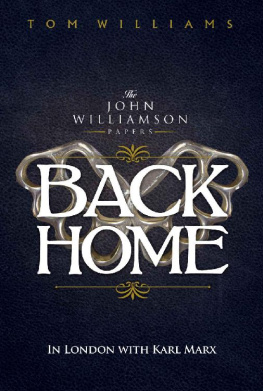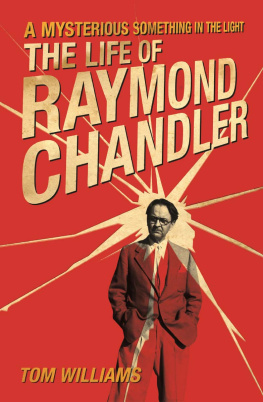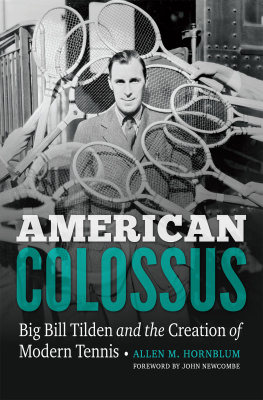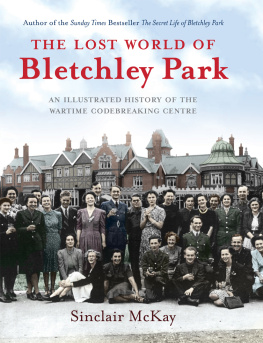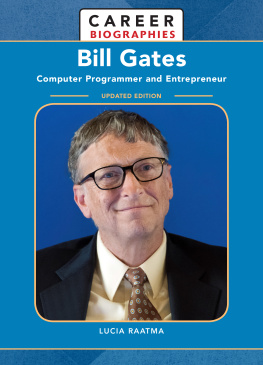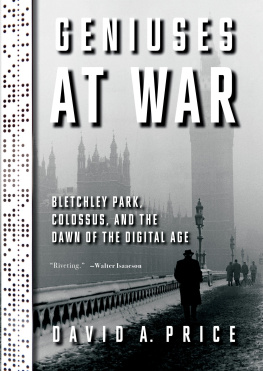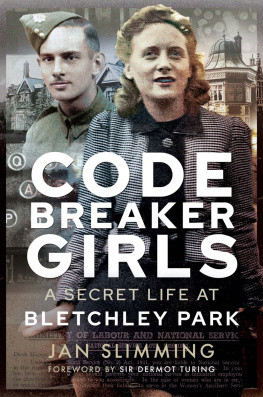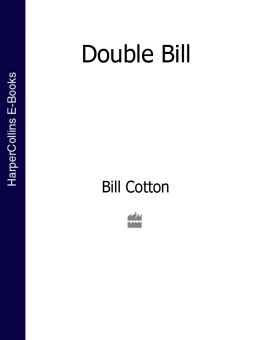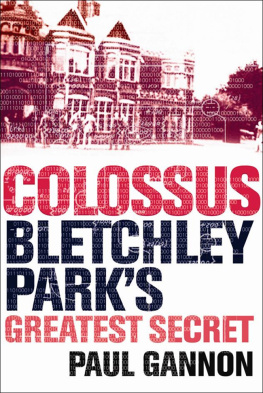Bill Tutte Codebreaker
Tom Williams
Austin Macauley Publishers
2019-10-30
Bill Tutte Codebreaker
About The Author
The author has lived in East Anglia for over 30 years and had a career in banking, including Head Office finance function.
He is married, and has two sons and two grandchildren.
He says writing and research has provided a rich vein of human contact with a generous spirit shown by all to talk and to share.
Other than writing, his interests include gardening, family history, walking, watching sport, code-breakers of Bletchley Park, economics, music, art and readingfavourite topics: real-life exploits (especially at sea), war stories (particularly POW escapes) and amusing fiction.
But, he says, family always comes first.
About The Book
Bill Tutte Codebreaker
The greatest intellectual feat of the Second World War.
a testimonial to Bill Tutte and his codebreaking discovery in 1942 at Bletchley Park.
Bill Tutte was a young, gauche PhD student, yet his remarkable breakthrough and continuing endeavour against a German cipher machine more complex than Enigma led to the development of the worlds first programmable computer, Colossus. Colossus allowed top-secret messages between Hitler and his generals to be read within hours, contributing significantly to the success of the D-Day landings and the eventual defeat of Nazi Germany.
So secret were the functions performed by Colossus that the work of Bill Tutte and his colleagues was classified for more than 50 years after the end of the Second World War.
This novel not only explores Bill Tuttes codebreaking, but also examines his autistic character, his background and close relationships all woven into the pressures and diversions of life at Bletchley Park.
Prime Minister David Cameron wrote in 2012:
We should never forget how lucky we were to have men like William Bill Tutte in our darkest hour and the extent to which their work not only helped protect Britain itself but also shorten the war by an estimated two years, saving countless lives. I can say without doubt that Bill Tutte deserves the thanks of the British people.
Dedication
To the memory of Bill Tutte
and
all who contributed to breaking the German code that
Bletchley Park called Tunny.
Copyright Information
Tom Williams (2019)
The right of Tom Williams to be identified as author of this work has been asserted by him in accordance with section 77 and 78 of the Copyright, Designs and Patents Act 1988.
All rights reserved. No part of this publication may be reproduced, stored in a retrieval system, or transmitted in any form or by any means, electronic, mechanical, photocopying, recording, or otherwise, without the prior permission of the publishers.
Any person who commits any unauthorised act in relation to this publication may be liable to criminal prosecution and civil claims for damages.
A CIP catalogue record for this title is available from the British Library.
ISBN 9781528949811 (ePub e-book)
www.austinmacauley.com
First Published (2019)
Austin Macauley Publishers Ltd
25 Canada Square
Canary Wharf
London
E14 5LQ
Acknowledgements
Principal acknowledgements must go to Richard and Susanne Youlden, the great-nephew and great-niece of Bill Tutte. Their support, help and guidance has been immensely important to me without which, the book could not have been written. I am truly grateful to them for their trust and for granting me the opportunity to join with them and others in seeking appropriate recognition for their great-uncle. Very sadly, Richard Youlden died in April 2019, before this book was published. I am also grateful to Helen May Williams (no relation) for sharing with me and allowing me to use extracts from her mothers wartime diaries and memoirs in the portrayal of the character Grace. Her mother was a graduate recruit to Hut 6 at Bletchley Park and interestingly, even her personal diary entries of that time held true to her vow of total secrecy. Helens mother was a wordsmith and poet and Helen, also a poet, kindly penned two poems for me in her mothers style, a lovely counter-balance to the serious themes of the book. I must also express my heartfelt thanks to Helen for willingly employing her considerable expertise in reviewing, editing and suggesting improvements to my manuscript. There are many others who have contributed in various ways, too many to thank individually. I would, however, single out three. Firstly, I mention Jim Reeds, a distinguished American mathematician and cryptography historian, who is one of the editors of a significant academic work, Breaking Teleprinter Ciphers at Bletchley Park, which incorporates the 500-page General Report on Tunny (GRT). The GRT was compiled by key players at Bletchley Park over several months at the end of the war in 1945 but was only declassified in the year 2000. I used it a great deal in the writing of this book. On occasions, I consulted Jim Reeds, who willingly shared his considerable knowledge and expertise on the subject. I am indebted, too, to Frederica Freer, who, on my behalf, posed questions to her husband, Stephen Freer, on his association with Bill Tutte at Bletchley Park. Their ready responses were both most helpful and encouraging. Sadly, Stephen Freer died in April 2017. Lastly, I offer my thanks to Ken Halton for his time and conversation. Ken was a young GPO teleprinter engineer in the Newmanry at Bletchley Park in the final 12 months of the war. He took a great interest in Tunny and in his later years, contributed to a number of books on the subject. His entertaining reminiscences provided me with many nuggets of everyday life at Bletchley Park.
For quotes reproduced from the speeches, works and writings of Winston S. Churchill: Reproduced with the permission of Curtis Brown, London, on behalf of The Estate of Winston S. Churchill The Estate of Winston S. Churchill.
Attributions
Where Shore Meets Ocean and When We Are Old and Grey by Helen May Williams are reproduced with permission. Helen May Williams 2017. Used by permission of the author. Extracts from VIA VERITAS VITA: The forgotten diary of Valerie June Dennis (ne Hepburn), covering a period circa 1940-52. Predominantly written while she was working at Bletchley Park 1943-45 are reproduced with permission. Helen May Williams 2016. Used by permission of Helen May Williams. Additional materials from A Memoir of Valerie June Dennis: 05 March 1922 09 February 2014 drawn on with permission. Helen May Williams 2016. Used by permission of Helen May Williams.


